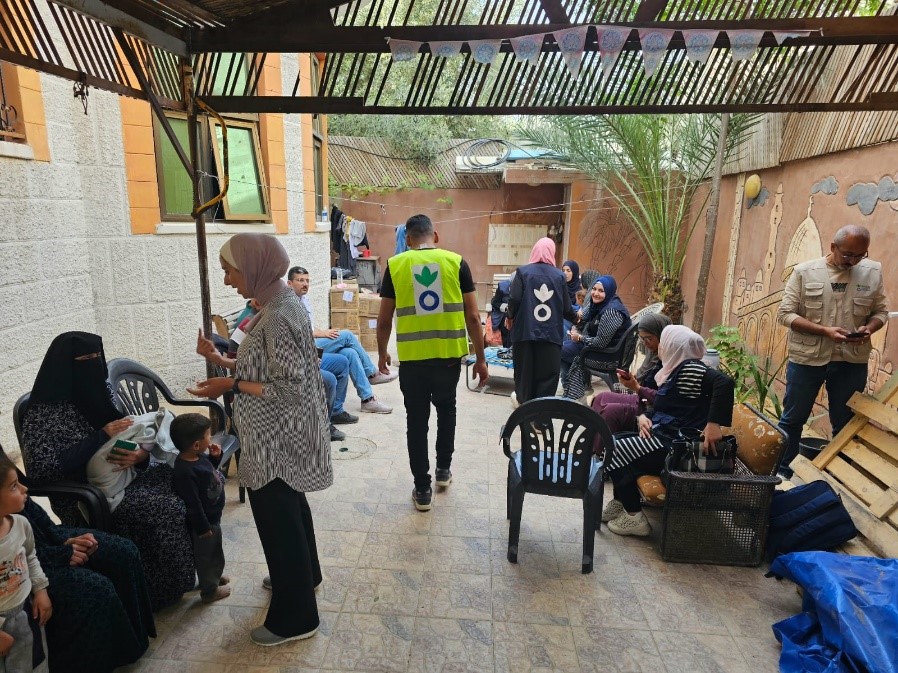Action Against Hunger, one of the few humanitarian organisations working on nutrition projects in Gaza, has launched a programme in Deir al Balah, in central Gaza. The project aims to prevent malnutrition among children under five years old, while also supporting pregnant women and nursing mothers with babies under six months old.
Currently, more than half a million children and mothers need nutritional assistance, and over one million people in Gaza—half of the Strip’s population—are suffering from or on the verge of starvation.
“In the clinics, we regularly see malnourished children, especially those under two years old. The lack of food affects their development: they do not grow to the average size for their age, and vital organs such as the heart, kidneys, and lungs are weakened. Their immune systems are compromised, making them more vulnerable to infections,” explains the nutrition and health coordinator of the Action Against Hunger emergency team, who has just returned from Gaza.
“These children haven’t received any vaccinations in the last seven months and live in very precarious conditions, without access to proper sanitation. They often come to us sick, with coughs and possible pneumonia, and we find they are suffering from malnutrition.”
To reduce the risk of sickness and mortality among newborns and to support mothers, Action Against Hunger has launched a new nutrition programme. This programme distributes lipid-based nutritional supplements aimed to reduce acute malnutrition in children over six months old, aiming to support more than 13,000 vulnerable people.
Prior to 7 October, only 0.8 per cent of Gaza’s under-five children were acutely malnourished, but the blockade of the Strip since then has led to catastrophic food insecurity.
“Before 7 October, we did not have nutrition and health programmes because it was not necessary. Given the current circumstances, we knew we had to act quickly. In the clinics we work with, we measure children’s upper arm circumference to determine if they are at risk of malnutrition,” said the nutrition and health coordinator of our emergency team.
“We distribute an extra 270-calorie supplement, about 50 grams, for children to take daily for 15 days. After two weeks, they receive another ration for the next 15 days. We also provide mothers with training on breastfeeding and child care before they return to their tents or shelters.”
The risk of famine, which getting closer for half of Gaza’s population, could be averted if we can halt the deteriorating food security, health, and nutrition situation with the entry of humanitarian aid through all land crossings and the provision of basic services. However, without a permanent ceasefire, famine remains imminent.


